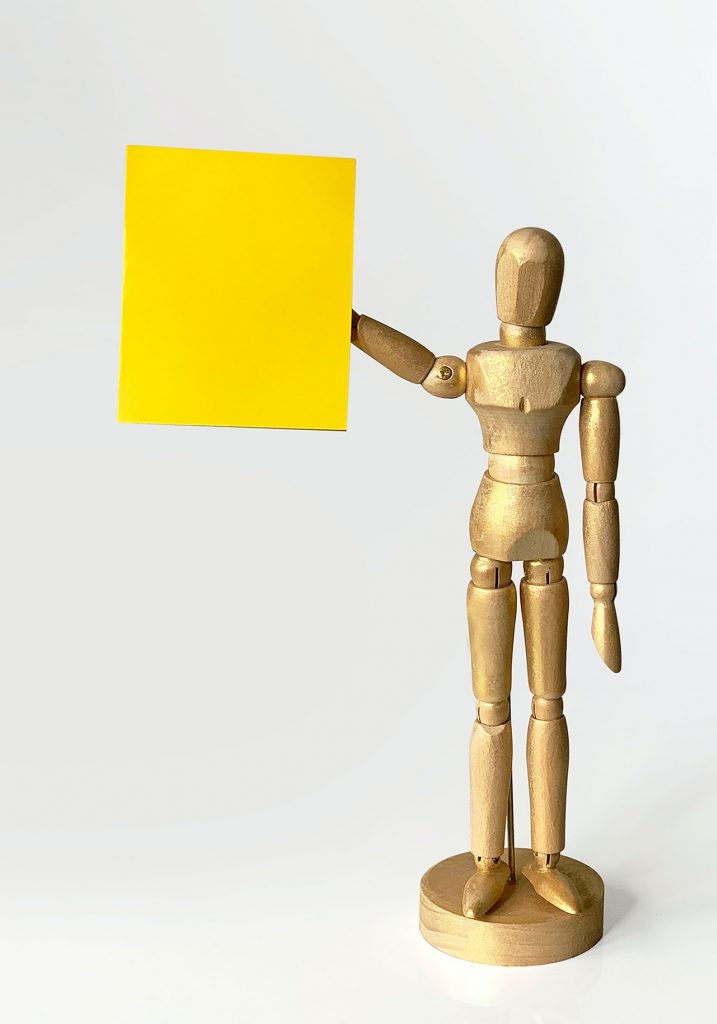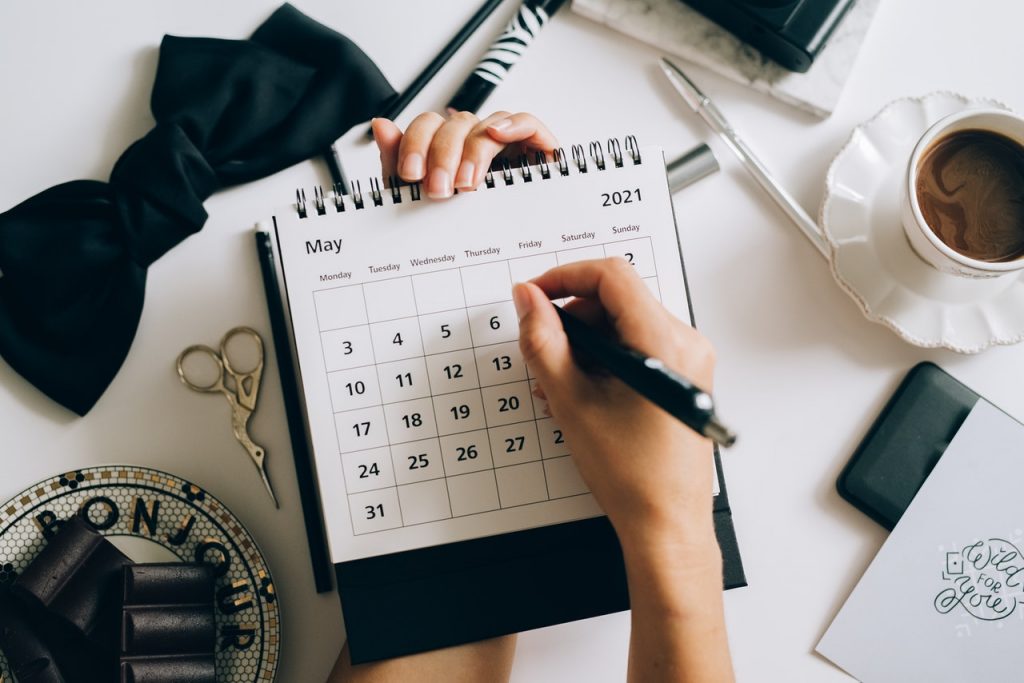What is Productivity?

In some circles, productivity has started to get a bad rep - especially in some spiritual development circles. They've associated productivity with some of the toxic aspects of hustle culture. Where productivity is seen as a way to fill a void within ourselves around self-worth, by doing as much as we possibly can. Or that our value is somehow dependent on what we do.
But I see productivity as merely our effectiveness at making, creating, or bringing forth something.
I believe as humans, our natural state of being is one of growth and thriving. And so, I don't see productivity, at least the way I've defined it, as contrary to what we are all seeking in life. This sense of expansion and the freedom to just be.
In fact, I see productivity essentially as a tool, to access what some might call "inspired action." When we're inspired to take action, especially from a place of stillness or of being in flow, productivity seems to take no effort. We've all probably experienced times where we feel so inspired to create something - something from our soul - where we can easily stay up all night or work for days or even weeks on end because we just feel so inspired to create something and bring it to life.
And so productivity can be a beautiful thing when it's not associated with feelings of not good enough. Of feeling like we HAVE to stay busy just to be able to fill a hole in our heart so that we can feel like we have value. In reality, productivity is really just a result of inspiration.
And so how do we find inspiration? Well, it's going in the direction of what brings us joy. What makes us happy. What makes us feel excited and passionate. Honestly, even in this day and age, this still requires a lot of courage due to societal conditioning and expectations. It's much easier (in the short-term) to become apathetic - or to allow the ego mind to convince ourselves that now is not the right time for growth and expansion.
For even in yin, there is yang - and even in yang there is yin ☯️

Below are a few tips to consider when contemplating productivity:
Tip #1: Do things that fill you up
My first tip is to find things you like to do, which you find fulfilling in and of themselves. When we do things that make us happy, that inspire us to act - our productivity will naturally go up because we feel passionate about what we're doing. In this way, being productive can sometimes feel like it's effortless. Or that if we need to spend a lot of energy, it feels good and in alignment with what we want.
We can really see this when people are stuck in jobs or careers that they hate or lukewarm about. If they're only there for the paycheck, there's no real love or passion for the work. So there's no intrinsic inspiration to be productive. Instead, they may live for the weekends or for that next trip that they may get to go on.
Find things to do that you find fulfilling and you will naturally become more productive.
Tip #2: Leverage what you're good at
My second tip is sort of an offshoot of the first one. And that is to leverage things that you're good at. Some things just come more naturally to us. We might not know why. Maybe we're just born that way. But it can never hurt to leverage our natural talents and strengths. By doing so, being productive can take a lot less effort.
But I do want to add this really important caveat. Leveraging our strengths is NOT the same as ignoring our weaknesses. Focusing ONLY on our strengths limits us. It is by going beyond what comes naturally and easy for us where we cultivate adaptability and real growth happens.
So, for example, if you have this big vision of being a high-profile trial lawyer, but you have this paralyzing fear of public-speaking. You will definitely need to work on developing your public-speaking skills - if that truly is a dream that is sewn inside your heart.
Tip #3: Remove impediments
My third tip is to identify and resolve impediments as soon as possible. What do I mean by this? Sometimes there are things we can remove or deal with to make it easier to be more productive. For example, maybe at your job, your manager holds daily meetings every morning that don't really have a clear purpose or they don't add any value. Well, that's hindering productivity. Especially because mornings are often when people are most productive.
So finding a way to stop these useless meetings or at least get yourself excused from them - would allow you to become more productive. It's like trying to drive your car with the parking brake on. You could drive with it on - at least for awhile. But it takes less energy if you turn the parking break off first. Similarly, resolving impediments before taking action helps to improve productivity and flow.

Tip #4: Take immediate action
My fourth tip is to always take immediate action as soon as inspiration strikes. This could be taking the first baby step after setting a goal. Something I first learned from Tony Robbins in the 90s. When we take that first step - of action, we begin the creation process. We've signaled to the Universe what we want - through our intention, action and focus.
And so, it's important to take immediate action because that begins the building of momentum. Momentum helps to build motivation. So we don't want to get into this waiting game of waiting for the perfect time or waiting for the perfect conditions before acting on inspiration. Because you know why? For most people, it ends up just not happening. And in life, in this physical ream, timing often DOES matter.
Ultimately, we can't control what happens outside of ourselves. So we must just begin. We begin by taking that first step. And it's important to note that in each moment, it is only the next step that matters. We don't need to know what happens 2, 3 or 10 steps down the road. It's great to have an idea. A vision. But we don't want to NEED to have everything picture perfect in our mind before we begin to take action. Because believing that we can know everything ahead of time is just an illusion. We learn things as we go. We learn things AS we take action. The important thing is to just begin. So take immediate action whenever inspiration strikes. This also helps us to not become so overwhelmed by big goals - by breaking them down into smaller, more manageable steps.
Tip #5: Take responsibility for creating quality results
My fifth tip is to focus on creating quality results. The amount of time spent doing something isn't necessarily an indicator of productivity. Productivity is about taking responsibility for results - that is, what we produce. For example, I might have a student learning something new from me. It's up to them whether they need to dedicate an hour to practicing something or 2 whole days until they "get it."
Successful people tend to see what they produce as a reflection of them. In a way, they see their results as a reflection of their identity. Now, this isn't to be confused with their self-worth. That's something different.
But productive people ultimately value results, and the quality of their results - over how much time they've put into something.

Tip #6: Finish any task that you start
My sixth tip is about finishing any task that you start. This tip is really about our capacity to focus. When we have a lot of half-finished things in our lives, our attention and energy is scattered and diluted. And as such, we're a lot less effective and productive.
It's like constantly having to switch gears from one thing to another. No matter how good you feel you might be at multi-tasking, I believe ultimately we are the most productive when we can concentrate our attention and energy on a single task and see it through to completion.
Tip #7: Create systems
My seventh tip is to create systems. A system is just a process that we follow so that we can achieve the same results each time we follow it. Results become repeatable, and thus productivity skyrockets. Systems allow us to create habits or routines that can help us to more consistently produce the results we want in life.
Take for example a daily morning routine. I've found I am most productive when following a morning routine because my morning routine consists of activities that help me to start each day feeling more grounded and connected to my purpose and vision. This puts me in a much better space for whatever it is I wish to accomplish or create that day. By being able to start each day with more intention, I'm able to stay more productive and focused throughout the rest of the day.
Tip #8: Stay organized with a daily todo list and time blocking
My eighth tip is to create a daily todo list. I'm a big fan of listing out everything I want to accomplish on any given day. In fact, it's even more ideal when I'm able to create my to-do list the night before, because I think somehow subconsciously, it allows me to wake up in the morning feeling more prepared to embrace the day. And I especially love crossing things off my daily to-do list as I do them throughout the day.
I'm also a big fan of time blocking. I assign an estimated amount of time to each thing on my to-do list. These days, I actually do calendar blocking. However, because I like the flexibility of being able to move tasks around throughout my day (depending on what I feel like working on in the moment) - I consider the blocks of time very modular.
All that said, I use to-do lists and time blocking as tools to structure my time more efficiently. Organizing our time better is crucial for productivity. We don't want to feel like we're constantly busy but not gaining traction on making progress towards what really matters to us. That just ends up with us feeling burnt out or overwhelmed.

Tip #9: Prioritize tasks by effectiveness
My ninth tip is to prioritize tasks by effectiveness. This is one that I'll sometimes struggle with myself. For example, I may have a list of a dozen things I want to get done on a specific day, and I'll focus on knocking out the smaller, easier tasks that - while they need to get done, they don't really move the needle much in the big picture. I do this because it's nice to have the feeling of crossing them off my to-do list.
But in reality, tackling some of the tasks that directly align with my bigger "life's work" goals in the morning - is probably a more effective prioritization of my time and energy. Because, sometimes I don't make it through my entire to-do list. And by prioritizing the less important things first, I never get to the things that truly make a difference in allowing me to fulfill my greater vision.
So we must know what our actual priorities are before we invest energy into something. We always want to be tackling whatever is of the highest priority at any given time. And sometimes, this may not be what we think it is.
For example, if we're exhausted because we stayed up late the night before to finish a big project - the highest and most effective use of our time COULD be to take a nap! By prioritizing a nap - we may be able to access more energy to focus on the rest of the items on our to-do list.
So we always have to be aware of what our highest priority is in a given moment so that we can be more efficient with our energy and thus our productivity.
Tip #10: Be aware of where your time and energy is going
My tenth tip is to become aware of where your time and energy are going. Take a week (or even a day or two) to track every single minute of your day.
For most people, this is a very eye-opening exercise. I know it was for me. I thought I was spending a lot LESS time doing certain things like watching Netflix, surfing the web, or scrolling through social media. And I was spending MORE time than I thought on other things like contemplating how I COULD be productive - rather than actually being productive :)
So there was a disconnect between where I THOUGHT I was spending my time, energy and focus - and where it was ACTUALLY going. And so, it's just good to have awareness around this so that we can come from a place of conscious choice. Maybe where we THINK we want to spend our time and energy is not where we really want to. Or on the other hand, maybe it IS where we want to spend our time and energy and we've just been lying to ourselves.

Tip #11: Remove distractions and simplify
My eleventh tip is to simplify and remove distractions. This can take on many forms. From keeping our desk or work space clean and organized, to removing devices that allow us to become distracted, such as the television or social media.
Our environment, both the external and internal, affect our energy and our effectiveness. By removing distractions and simplifying our lives, we create the space for clarity. Clarity around where we wish to place our attention and energy.
One of my main distractions is my phone. Up until a week or two ago, I used it for a lot of things to help me with my productivity. One way I did this was I would use the timer to set a certain time that I wanted to focus on a task before taking a break. But what I realized was whenever I went to set the timer, I would see my text notifications. Or I might pop into Instagram real quick to see what I had missed.
And then the same thing would happen when the timer went off and I had to silence it. So to solve this issue, I bought a cube timer off Amazon. Having a separate timer, not connected to my phone, has really helped me to stop being distracted by my phone and it's made a huge difference in my productivity.
The goal is to just reduce the amount of time we waste by responding to what other people want from us, rather than what we want for us. Distractions sometimes deplete and scatter our energy before we are even able to get to what we truly want to put our energy into - the things that move us towards our larger goals and greater purpose here.

Tip #12: Expect challenges and obstacles
My twelfth and final tip is to expect that challenges and obstacles will come your way. In certain spiritual development circles, there is an expectation that creating and producing things should always feel easy and without struggle or effort.
I have not personally found this to be the case. Yes, when we try to FORCE things that aren't meant for us, or the TIMING isn't right, there will undoubtedly be feelings of resistance and friction. However, I believe even "inspired action" will sometimes feel like it's coming with resistance and challenges.
It's just par for the course when we're trying to manifest or produce something. There are going to be times where it feels like things aren't working and that we're going against the grain. Where we question whether we're actually coming from a place of inspired or aligned action.
And here is where we must have the discernment to recognize that struggles, setbacks and failures don't mean that we weren't actually inspired towards the thing that we were working towards in the first place. We must learn to embrace the struggle instead of having it trigger doubt within us and make us quit. Yes, sometimes we may need to take a step back and rest a bit.
But ultimately being successful and staying productive is about learning to manage our focus and energy more effectively. It's about cultivating a relationship with our inspiration. It is where inspiration and energy management converge - where we are able to access the greatest productivity and bring to life that which we are trying to create and produce.
